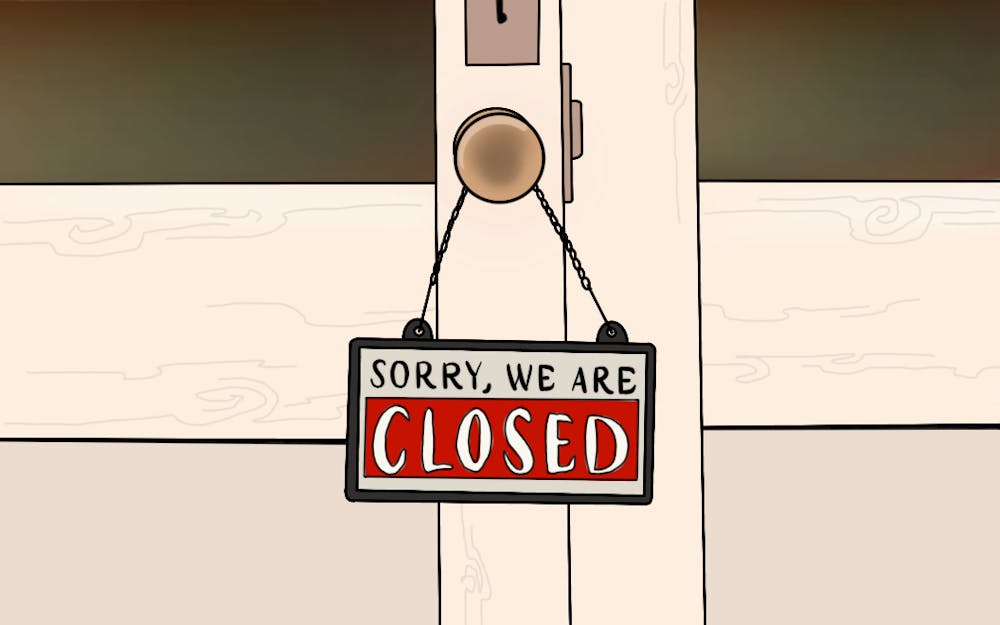Last week I scoured the internet for inspiration for my next column. Ideas usually jump off the pages as I scroll through the New York Times, the IndyStar or the IDS.
But as I read each new headline, the world seemed to be slipping more and more into complete and utter chaos. I’d been having a pretty good week, so why was I suddenly deep in a swirl of hopelessness?
With new, morose headlines almost every day, writing opinions on increasingly negative subjects is exhausting.
Recently it’s felt like all the opinions I have involve preventing the world from overheating, advocating for basic human rights or preserving the foundation of our democracy. When every news story seems to pose a perilous threat to humanity, I start to feel an overwhelming shift toward pessimism.
Because most of my research comes from the news, I thought this might have to do with how I consume mass media. The term “doomscrolling” has only soared in popularity since the beginning of the COVID-19 pandemic. It’s defined as “the tendency to continue to surf or scroll through bad news, even though that news is saddening, disheartening or depressing.” Continuing to page through multiple news stories and sites is destined to bring you across some depressing content.
The news might also be getting more bleak. The Proceedings of the National Academy of Sciences of the United States of America has made clear that modern coverage of current events is predominantly negative. Its 2019 study claimed questionable journalistic practices account for the overwhelming negative perception of news and current events in the United States.
We saw this throughout the pandemic. Bruce Sacerdote, an economics professor at Dartmouth College, told the New York Times that news media would often flip-flop its focus to keep stories pressing and engaging, citing increased coverage in areas where COVID-19 cases were on the upswing and little in areas where cases were trending lower. In 2020, 87% of COVID-19 news in the US was negative, compared to only 51% worldwide, creating a skewed, negative perception of our progress throughout the pandemic.
But the problem goes deeper than just reporting bias. PNAS’ study also emphasized the psychological tendency to fixate on negative information. Not only are we seeing negative news more frequently, but our brains exacerbate its presence by focusing on it.
The effect of negative news on college students, however, is more cryptic. The demands of university life are enough to keep us burning out every once in a while. When you add the pressures of doom-and-gloom headlines, it’s easy to plunge deep into hopelessness and shut down.
Surprisingly, I have a lot of classmates who are feeling more optimistic. According to an NBC News poll, 92% of freshmen are optimistic about their personal relationships, with 28% considering themselves “super optimistic.” These students highlight their hopes in their personal lives, such as finding potential jobs post-university and excitement in starting their own families.
A study by the International Journal of Developmental and Educational Psychology found that optimism in many university attendees correlates with demonstrated resilience of those students. After all, if there’s one thing students have after COVID-19, it’s resilience.
But just behind that personal optimism comes a more pessimistic world view. NBC’s poll also found that only 36% of respondents trusted the national media and 48% trusted President Joe Biden and 48% said they were optimistic about the United States. Within an exterior sense of self worth and personal hope, students are still plagued by issues holding our country in perpetual crisis.
This push and pull between personal optimism and global pessimism cannot become the norm. Yes, coverage of negative events is necessary, and I don’t regret my past opinions on them. They are just as important as positive stories. But in an ideal world, media outlets would adopt a greater focus on accuracy rather than skewed reporting that might get more clicks or views. Maybe then we can all encounter more frequent positive news stories in our daily lives.
I’ll be honest and say that next week I’ll probably doomscroll again and feel the familiar onset of stress and worry. But I’ll try to find the elusive positive stories, keep in mind the collective resilience we’ve exhibited this past year and feel some optimism.
Chris Sciortino (he/him) is a junior studying theater and public relations. He is involved with the Queer Student Union and College Democrats at IU and spends a considerable amount of time showing people pictures of his dog, Ellie.






